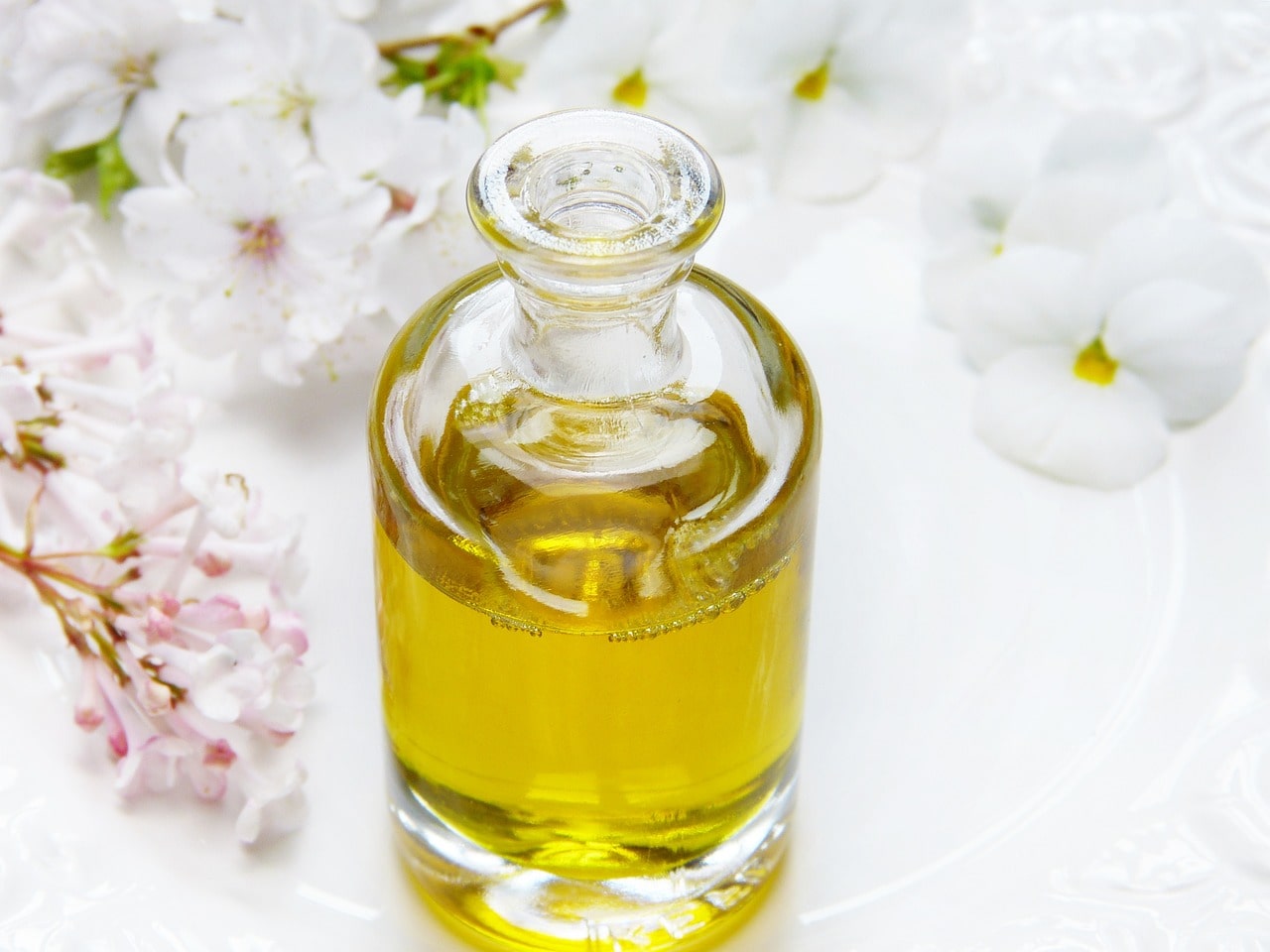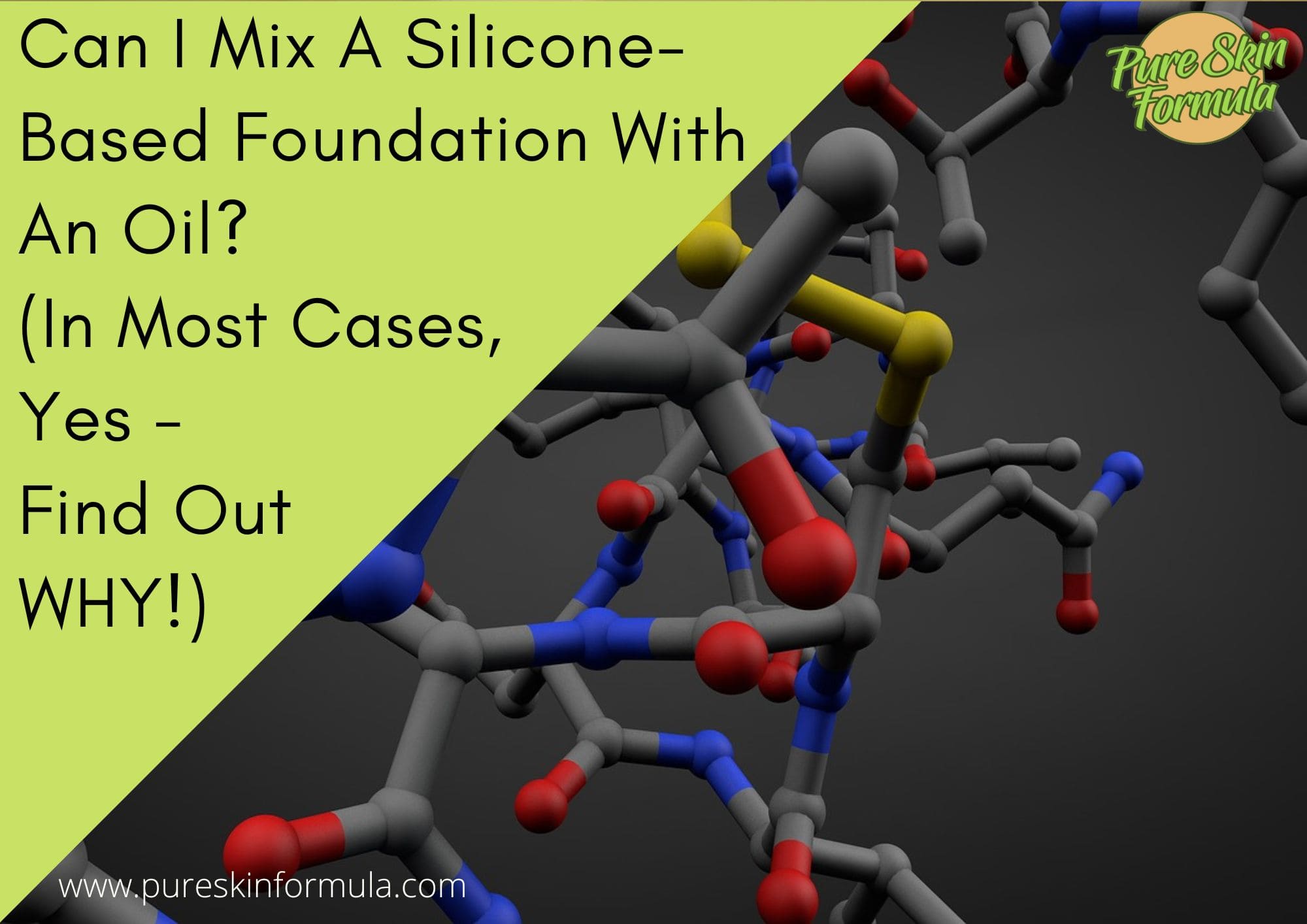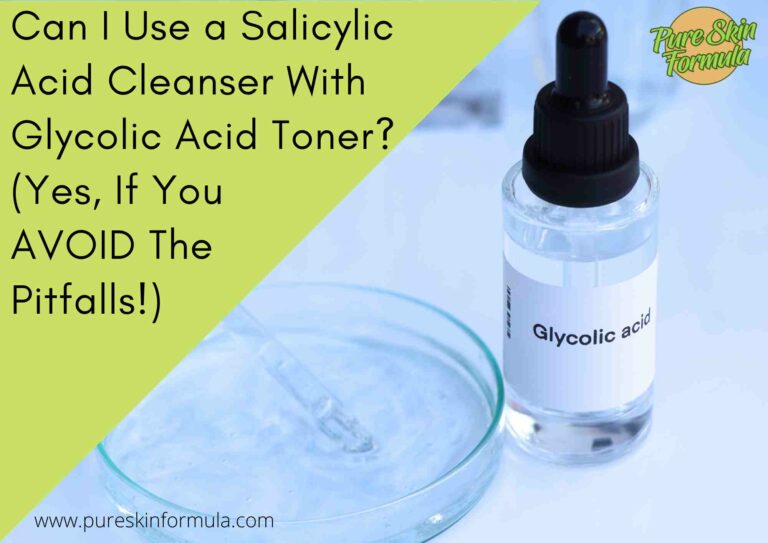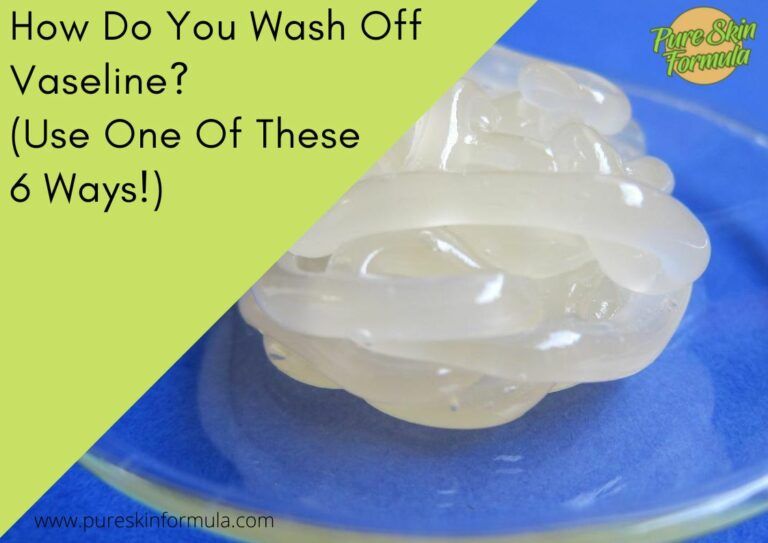To answer this question, we must understand what silicone is and whether it is easy to mix with oil. Is silicone an oil?
Are silicone oil and natural oils similar? How do they interact together?
Let’s find out:
Can I mix a silicone-based foundation with an oil?
In many cases, you will be able to mix both substances.
Technically speaking, silicone is not an oil but a polymer. This allows some manufacturers to advertise their silicone-based foundations as “oil-free”.
At the same time, there is a good chance that products with silicone will match the natural oil added.
This is not guaranteed. The solution is to experiment and make a patch test. If the mixture works – go for it!
Let’s see the details now.
What are silicones?
Silicones are inorganic polymers derived from the combination of silicon and petroleum products.
If nature creates carbon compounds, man has made analogous substances from silicon, capable of creating long chains with different characteristics.
There are many types of cosmetic silicones, for example, those with a ring structure that is easy to apply and evaporate in a short time (cyclomethicone, cyclopentasiloxane, cyclohexasiloxane), others that are more difficult to absorb and do not evaporate (dimethicone), and others that are very heavy and non-absorbent, such as dimethicone copolyol.
Silicones have been used for the last couple of decades and are widely used in cosmetic products. Nowadays, they are incredibly common in cosmetics, including foundations.
Why are they put into cosmetics?
They are cost-efficient.
Silicones make products very gentle, light and pleasant to touch and apply.

Incorporating them prevents the thick white residue when applying the creams.
They are light and absorb immediately, unlike many natural oils.
They leave the skin silky soft, with perfect coverage when in a foundation.
Silicones resist high temperatures and oxidation, meaning they do not cause bacteria to increase in the beauty product.
They do not cause allergies and do not penetrate deep into the skin.
They are water resistant, which makes them widely used in sunscreens because they improve the effect of chemical filters.
Do silicones have disadvantages?
They are added to cosmetics instead of natural moisturizing and softening oils of natural origin.
Silicones are not absorbed by the skin and do not nourish or hydrate it. Quite the opposite.
Silicones form an impermeable layer on the skin and do not allow it to breathe.
The skin absorbs practically nothing of the cream itself, while at the same time, it is not hydrated.
From an environmental point of view, silicones are not biodegradable. Using them, we pollute the water and accumulate them in the environment.
Silicone oil could be used to disguise cosmetic formulas, cheap and poor in active ingredients because they give an apparent effect while the product does nothing else.
How to find silicones on the label?
Typically, silicones end in -one and -ane.
It’s also important to pay attention to the position of the silicone in the entire list of ingredients. If it is found at the top, its content is higher.
Some people demonize silicones, but experts say the skin would tolerate silicone at a maximum concentration of 2%.
Silicone-based foundations vs other water-based and oil-based ones
Water-based foundations will contain neither oil nor silicone at the top of their ingredient lists. They are more appropriate for people with oily skin.

Oil-based foundations will contain oils at the top of the formula. They are suitable for dry skin types.
Regarding silicone-based foundations: in manufacturers’ product descriptions, you will see examples such as the below one:
- Enhanced spreading, uniform application and pigment dispersion;
- Adhesion of film formers for waterproof, non-transfer and long-lasting features while retaining a silky smooth and moisturized feel;
- Optical diffraction properties of elastomers for wrinkle blurring with powdery and velvety skin feel
- SPF boosting and luxurious sensorial properties that enable the benefit of skin and sun care in makeup products.
Silicone-based foundations are recommended for skin of all types.
Is it OK to mix silicone-based moisturizer with oils?
If both substances fit, it seems worth experimenting. Due to the oils, you can add more hydration to your skin.
You can save time if you are in a hurry and get an exciting finish due to the blend instead of the expected one.
This could especially work for you if you have dry skin.
In conclusion
There is nothing wrong with experimenting with mixing oil with silicone-based foundation. It might work and vice versa.
But if both parts match, you can reach the new, different, interesting and more exciting substance your skin deserves.
In this text, I have uncovered what stays behind silicones, their advantages and disadvantages, and how they can interact with oils.
Thank you for reading!
Valeria







